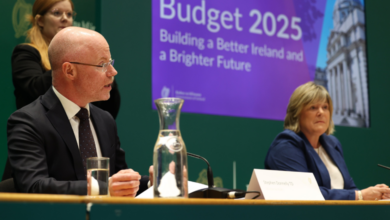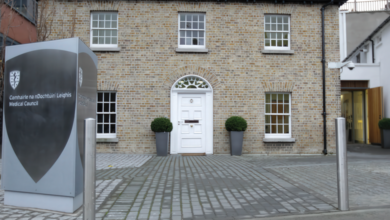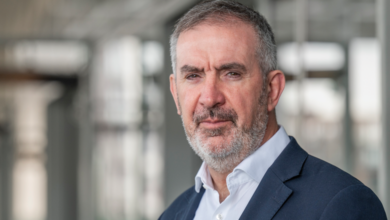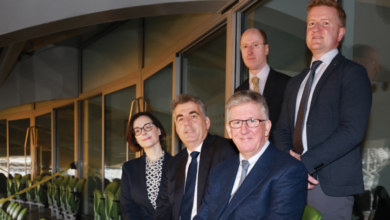Removing barriers of digital transformation in healthcare

The pandemic has changed the face of every organisation for good, and none more so than those within healthcare. As healthcare organisations focus on the road ahead, they face changing patient expectations for virtual care, along with new clinical and business realities, writes Ryan Heynes, Healthcare Lead, Dell Technologies.
Providers are challenged to keep their staff safe, provide non-urgent clinical services and prepare for resurgent needs, all whilst supporting a remote and sometimes disparate workforce, not to mention the continuing impact of the pandemic.
Given the focus on short-term operational challenges over recent times, many healthcare organisations have yet to address the new ways of working required to satisfy the ever-evolving needs and demands of patients into the future.
When I was asked to lead the healthcare business for Dell Technologies a year and a half ago, I was both apprehensive and excited about the opportunity that digital change could bring to our health system.
However, I was reassured to join a well-established, dedicated healthcare team in Dell Technologies, brimming with experience from around the world in various healthcare disciplines and very much aware of the great responsibility that comes with our role. I recall one of my now colleagues explaining to me that “technology in health is similar to other industries but having the right solutions can actually be a matter of life or death”. Needless to say, this was a little daunting.
Dell Technologies has a long history of supporting healthcare organisations in Ireland and beyond to realise the potential of technology in delivering patient care, as well as helping clinical providers to optimise their applications for use in healthcare environments.
We currently support over 10,000 hospitals worldwide with digital transformation programs and with our team of over 200 healthcare specialists we are well positioned to understand the unique and demanding requirements that healthcare providers have.
As we look ahead, it’s clear that healthcare providers will have to contend with an ageing population. More than 700 million people on the earth today are aged 65 or over, approximately 9 per cent of the entire global population. The United Nations (UN) predicts that one out of every six people will be over the age of 65 by 2050. In Ireland, it’s expected to be more than one-in-four with the number of people aged 75-84 set to jump by 76 per cent by 2031. With advances in medicine and technology helping people live longer, this trend is only set to continue.
However, as we live longer and see an increasing number living with chronic conditions, Ireland’s population will require additional healthcare supports. Globally, on average one-in-three of all adults suffer from multiple chronic conditions (MCCs). In Ireland, the situation is even more pronounced with over 50 per cent of adults suffering from at least one chronic condition, and 40 per cent suffering from two or more.
The most common conditions include coronary heart disease, arthritis, cancer, stroke, dementia, hyper-tension and high cholesterol, diabetes, and chronic obstructive pulmonary disease (COPD).
Advances in technology are helping healthcare organisations to treat these diseases more effectively, but they are also helping patients to self-manage their own care more effectively, or to “stay left” by taking responsibility for administering treatment on time and recording changes in their condition. This in turn has led to a richer set of data being captured by health care providers, who are utilising advanced analytical programs to determine optimised treatment pathways and new drug combinations to improve a patient’s outcome.
In addition to “staying left” and managing your treatment from home, technology is supporting the “shift left” movement focused on moving patients out of the acute hospital settings which are invasive and expensive, into a community or home setting to be treated. These initiatives underpin the Sláintecare strategy for modern healthcare, but also align with a proactive health model or what’s known as the “wellness model” of keeping people healthy and preventing illness, which is the opposite approach to our current “sickness model”, whereby you become ill and look for treatment.
“We currently support over 10,000 hospitals worldwide with digital transformation programs and with our team of over 200 healthcare specialists we are well positioned to understand the unique and demanding requirements that healthcare providers have.”
Speaking of treatments, the speed at which new treatments and drugs are being developed and released into the market seems to be a major cause for concern amongst some individuals. The Covid-19 vaccine is an example in point, whereby there is still a level of mistrust and fear amongst communities about the vaccine due to misinformation that has spread about the speed at which the vaccine was developed and released, fuelling concerns about safety and potential side effects.
But what isn’t so well understood is how the use of new technologies such as artificial intelligence and machine learning have helped to dramatically speed up the analysis of the research data that previously would have taken months and potentially years to understand, enabling it to be analysed in a matter of minutes or hours. Similarly, the use of technology to automate the manufacture and distribution of these drugs reduced the time it took to mass produce and deliver the vaccine to healthcare organisations around the world.
This is another area with which Dell Technologies have been supporting industry leaders within the pharmaceuticals sector: utilising these complex technologies to bring drugs to market quicker, enable patients to benefit from them earlier and receive improved treatments that will lead to a better quality of life.
Technology can sometimes be perceived as complex and a little scary to some. This is often a major barrier to digital transformation across any industry. One of our goals in the Dell Technologies healthcare group is to help more people who work in healthcare roles better understand the basics of technology in health and de-mystify some of the more emerging technology trends.
One of the initiatives we started to discuss after a short time in the role was an open briefing programme, which in partnership with the HSE quickly evolved into a six-month, recognised diploma programme. We wanted to make the initiative free, flexible, and engaging for anyone working in healthcare.
The diploma, now entitled Digital Futures in Healthcare, helps to highlight several key healthcare technologies and inform healthcare staff of their benefits, how the technologies have developed and continue to develop and the potential use cases in improving care for patients.
We marry industry expertise from our global healthcare team to local expertise from leaders across our health system to highlight key digital health technologies in a short two hour fully produced webinar format.
The course is set across six separate modules, each focusing on a different type of technology used in the treatment of patients.
The Digital Futures programme has been designed to be accessed by staff at any level working across any discipline in healthcare. So, whether you’re a Chief Executive or in a clinical role or IT role, it doesn’t matter. Everyone working in healthcare has a role to play in driving digital transformation which, in turn, will deliver better patient and clinician experiences and, ultimately, better outcomes.
The numbers registering for the programme has been simply incredible, with over 1,500 people taking part in the program. Numbers are still rising as we continue to accept registrations, with content available on demand after each broadcast.
We are now in the fourth month of the course and feedback has been really positive from across the board, with lots of suggestions and requests for additional topics to be covered in follow-up initiatives.
Why should people sign up? Quite often new technologies can be implemented in complete isolation from the other teams across a hospital or healthcare organisation, with very few understanding the reason for its implementation or the benefits it can bring. We have seen new innovations in the use of these technologies come from staff who are not involved in its primary use, but who understand the capability of these technologies and apply it to their own work environment.
Through sharing and helping people to understand the benefits of these technologies, we hope to empower staff to come up with their own innovations and identify new capabilities for using technology to improve patient care, along with improving adoption rates. This will result in better outcomes for all and help remove the barriers to digital change.
If you would like to register for the Digital Futures in Healthcare program and access the On-Demand content from previous sessions, you can find all the information on this website: www.delltechnologies.com/en-ie/industry/healthcare-it/digital-futures-in-healthcare.htm
E: Ryan_Heynes@dell.com
W: www.dell.com
![]()





